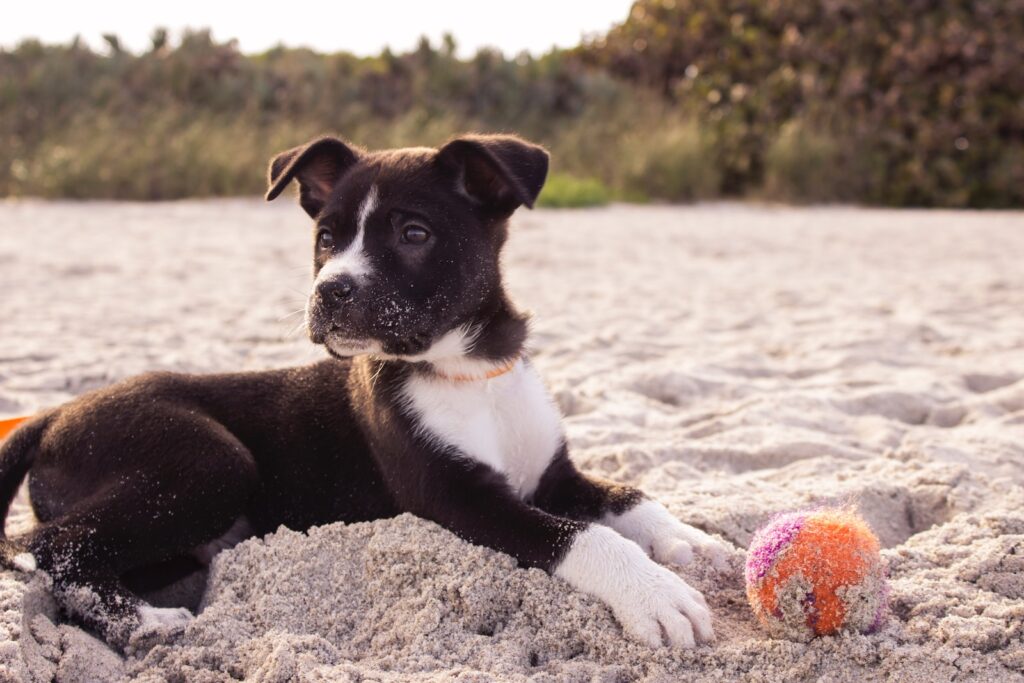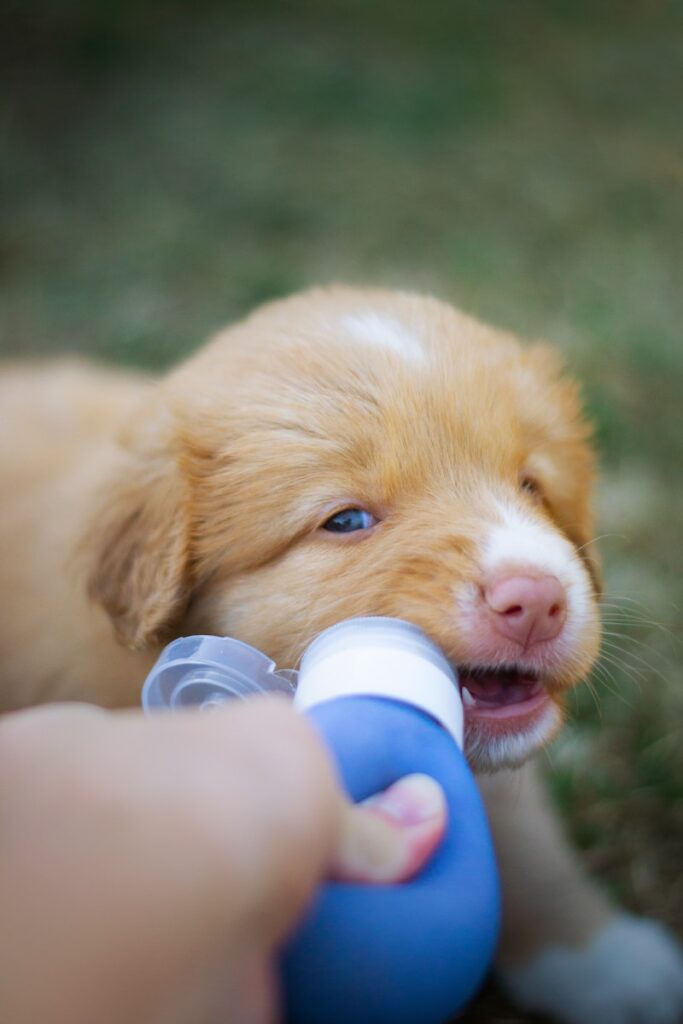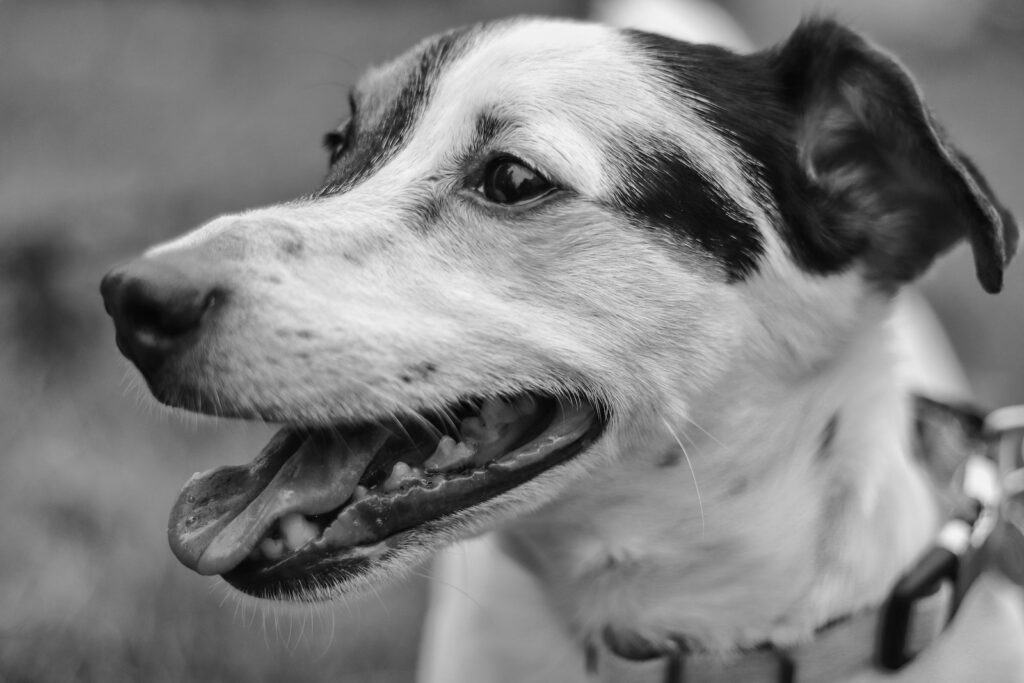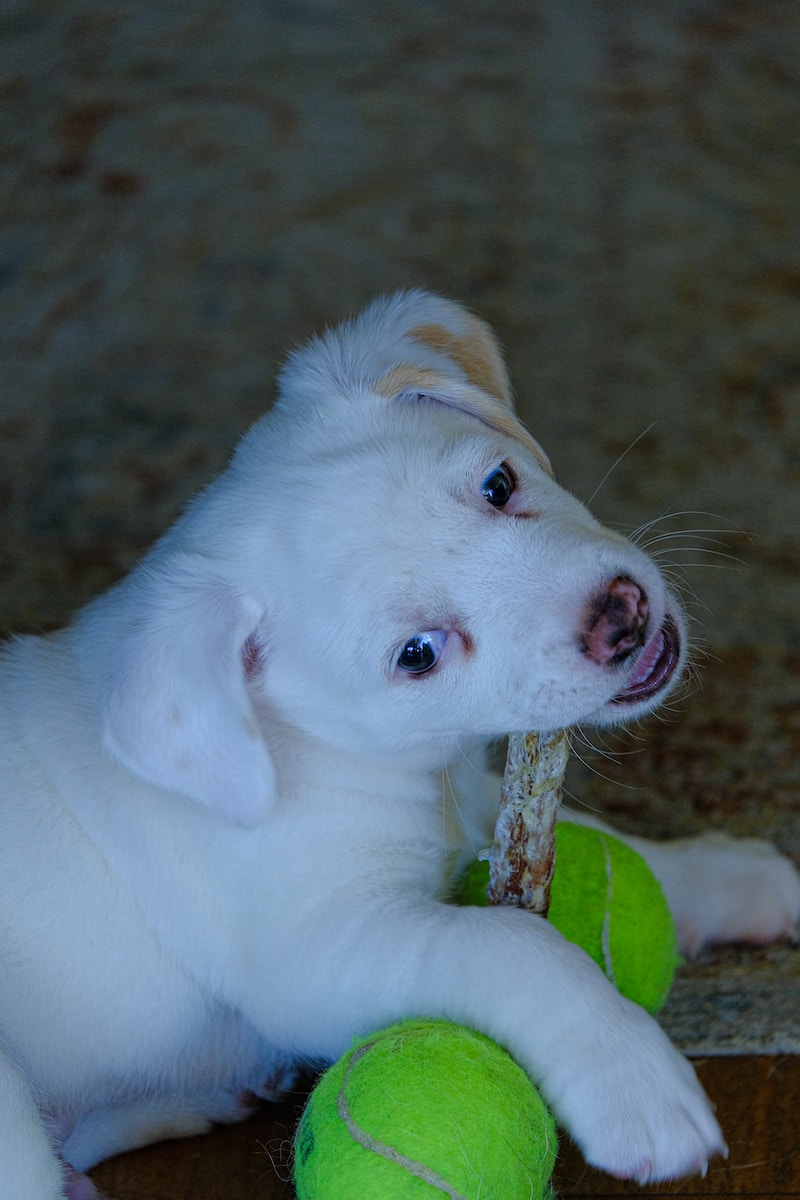Hey there, fellow puppy parent! So you’ve got yourself an adorable little furball, but those sharp puppy teeth seem to be channeling their inner Jaws, chomping on everything in sight, including you. But fear not! We’re here to help you keep your fingers and sanity intact while teaching your pup some manners. Let’s dive into the world of puppy nipping and explore how to stop a puppy from biting. 🐶
Quick side note: If you’re determined to transform your pup into the ultimate canine superstar, you absolutely have to check out Adrienne Farricelli’s dog training program. Seriously, she’s one of the warmest personalities in the dog training universe. And her classes? Oh boy, they’re like having your very own dog whisperer right at your beck and call. Adrienne’s approach is incredibly down-to-earth (pun not intended), and she’s ready to show you the ropes to have your furry pal trained like a pro. So, if you’re after a comprehensive, in-depth guide to canine training success, don’t miss what Adrienne has in store. Your pup will be forever grateful with a million tail wags! 🐶❤️
Why Do Puppies Bite?
Before we dive into the “how-to” part, let’s understand why those furry teeth like to nip in the first place. Puppies are like toddlers, exploring the world with their mouths. Biting is part of their learning process, a way to understand their surroundings, and it plays a crucial role in their socialization.
But hey, puppies aren’t just curious; they’re teething too! When those baby teeth are making way for the adult set, everything suddenly becomes a potential chew toy. When learning how to stop a puppy from biting, its important to be patient with your new pup as they don’t mean harm by it.

It’s All About Exploration
- They’re Exploring the World: Just like tiny humans put everything in their mouths, puppies do the same. Through biting, they learn about textures, tastes, and how hard they can chomp down. It’s all about gathering sensory information, and sometimes, you end up as the lucky subject of their investigation!
- Teething Time: Teething begins when your pup is around 12 to 16 weeks old, and trust us, their gums can get a bit sore. So, during this teething phase, it’s open season on anything they can chew on. That includes you, your clothes, and your hair – consider yourself part of the teething buffet.
- Playtime All the Time: Puppies also bite during play as a way to invite you to join the fun. It’s their way of saying, “Let’s wrestle!” When puppies play together, they learn how much pressure they can apply with their teeth. If it hurts, the playmate yelps, and the biting puppy learns to tone it down.
How to Stop a Puppy from Biting
Here’s the part you’ve been waiting for – the “pawsome” solutions to help your puppy understand that fingers aren’t appetizers. The key is figuring out why your puppy is nibbling and addressing that issue.
If Your Puppy’s Target Is Your Belongings
When your pup is chewing on your favorite shoes or the corners of your sofa, it’s time for action. Make sure your puppy gets enough exercise, playtime, and mental stimulation. A tired pup is a happy pup, and they’re less likely to chew on inappropriate items.
Offer a variety of puppy-approved toys to keep them entertained. If you catch them in the act of chewing your favorite book, calmly redirect them to a toy and shower them with praise when they start chomping on the right thing. Positive reinforcement is the name of the game!

When Teething Is the Culprit
Teething can be tough on puppies, and it’s your job to make it easier. Invest in some teething toys specifically designed for puppies. These are made with softer materials, so they won’t hurt your pup’s sensitive gums or damage their baby teeth.
Just make sure to supervise their teething toy sessions to prevent them from chewing off any small bits they could swallow.
If Your Puppy’s Trying to Play
When your furball thinks your fingers are the gateway to an epic play session, it’s time to train them otherwise. If your puppy bites to initiate play, redirect them to a toy or a suitable playmate. And if they insist on using your hand as a chew toy, here’s what you do:
- Withdraw Yourself: The moment your puppy bites, get up and remove yourself from their play area. Go to another room or behind a gate, so they can’t follow. Stay out of sight for about 30 seconds.
- Resume Play with a Toy: Return with a fun toy in hand. Encourage your puppy to focus on the toy, and they’ll soon learn that toys, not fingers, are for playtime.
Remember, tired puppies tend to bite more, so ensure they get enough rest and naps in between play sessions. Sometimes, all they need is a bit of shut-eye to curb the nipping.
The Big No-Nos: Harsh Corrections
Whatever you do, don’t resort to harsh verbal or physical corrections. These methods don’t teach your pup how to behave; they only teach them to be afraid or, in some cases, to escalate their biting.
Positive reinforcement is the way to go. Praise your pup when they do well, and you’ll have a well-behaved, happy, and less bitey puppy.
Fun Play with Age-Appropriate Toys
Puppies love to play, so let’s channel that energy in the right direction. Start with a variety of puppy-safe toys and figure out their favorites. Soft rubber toys, puppy-sized rubber balls, rope toys, and plushies are all good choices.
Whenever your puppy grabs their toy, praise and cheer them on. If they go for your hand or clothes, immediately stop the play and remove yourself. Once they follow you, come back with a toy, and the lesson continues: toys are the best!
Socialization Classes: Puppy Style
Puppy socialization classes are like school for your little furball. Here, they learn important life lessons like bite inhibition and how to interact with other pups. It’s a controlled environment where they discover what’s acceptable during play and what’s not. And bonus, they get to make new fur-iends!

When Biting Persists in Adult Dogs
If your dog continues to bite into adulthood and it’s causing harm, don’t hesitate to reach out to a certified behavior consultant or a vet behaviorist. They can help you manage and modify this behavior effectively.
Puppy Biting FAQs
At What Age Do Puppies Stop Biting?
Puppy biting peaks when they’re around 12-13 weeks old during the teething phase. Once they have all their adult teeth around 7 months, biting should subside. However, some dogs may continue if they’ve learned that biting gets them what they want.
How Do I Get My Puppy to Stop Biting My Hands and Feet?
First, play with your puppy using toys instead of your hands and feet. If your pup targets your hands while being pet, redirect them to a chew toy. If the biting includes pressure, growling, or aggressive behavior, consult a behavior professional.
How to Stop My Puppy from Biting My Ankles?
Use a tug toy to redirect your puppy from your ankles. Encourage them to follow you calmly, with their eyes up and offering treats as rewards. This also lays the foundation for loose leash training. If your puppy persists, they may need a nap or some quiet time.
Remember, puppy biting is part of growing up, and with the right guidance, you’ll have a loving and gentle companion in no time. Happy puppy parenting! 🐾✨

